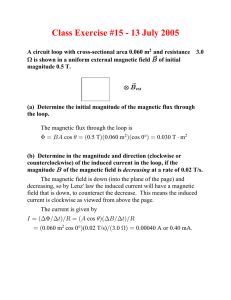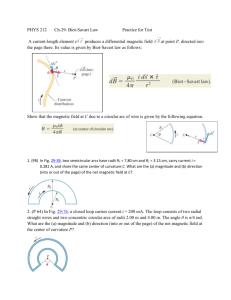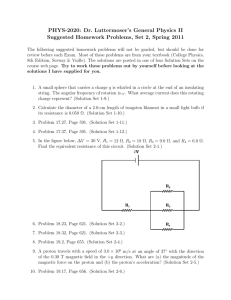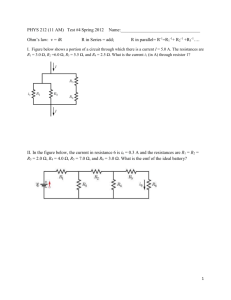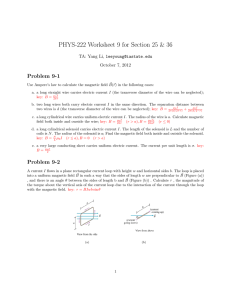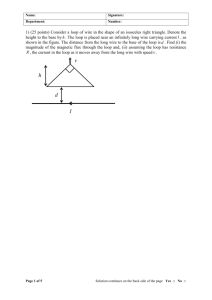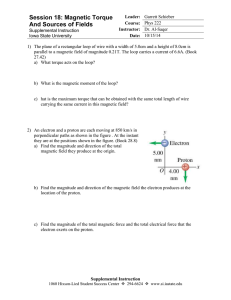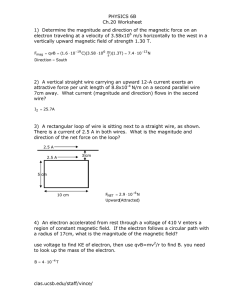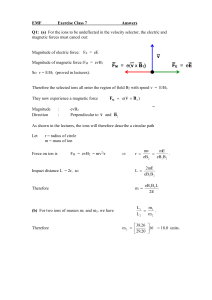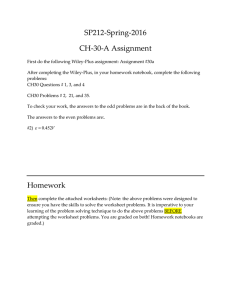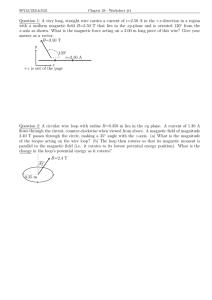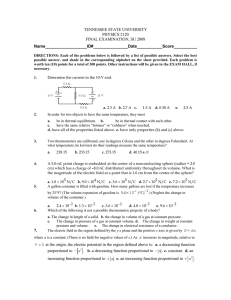Document 10986462
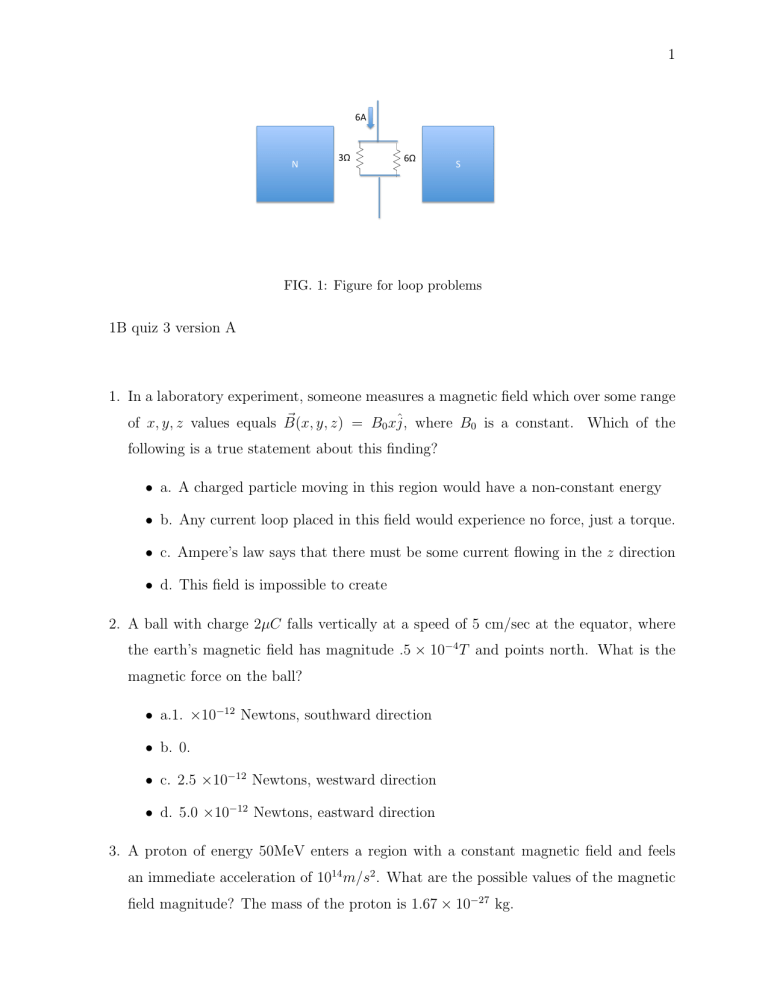
1
N
3Ω
6A
6Ω
S
FIG. 1: Figure for loop problems
1B quiz 3 version A
1. In a laboratory experiment, someone measures a magnetic field which over some range of x, y, z values equals
~
( x, y, z ) = B
0 x
ˆ
, where B
0 is a constant. Which of the following is a true statement about this finding?
• a. A charged particle moving in this region would have a non-constant energy
• b. Any current loop placed in this field would experience no force, just a torque.
• c. Ampere’s law says that there must be some current flowing in the z direction
• d. This field is impossible to create
2. A ball with charge 2 µC falls vertically at a speed of 5 cm/sec at the equator, where the earth’s magnetic field has magnitude .
5 × 10
− 4
T and points north. What is the magnetic force on the ball?
• a.1.
× 10
− 12 Newtons, southward direction
• b. 0.
• c. 2.5
× 10
− 12 Newtons, westward direction
• d. 5.0
× 10
− 12 Newtons, eastward direction
3. A proton of energy 50MeV enters a region with a constant magnetic field and feels an immediate acceleration of 10
14 m/s
2
. What are the possible values of the magnetic field magnitude? The mass of the proton is 1 .
67 × 10
− 27 kg.
2
• a. 0 < B < 2.6
× 10
− 4 T
• b. 0 < B < 1.1
× 10
− 2 T
• c. 2. 6 × 10
− 4 T < B < ∞
• d. 1.1
× 10
− 2 T < B < ∞
4. Consider the square loop with side length 2 cm shown in the figure above, where the current of 6A divides into flow going through the two resistors of 3Ω (left) and 6Ω
(right). The loop is placed in a region of constant magnetic field (created by the bar magnets) of magnitude .01T. What is the total force on the loop? (note: do not include any force on the wires attached to the loop itself)
• a. 6.0
× 10
− 4 N out of the paper
• b. 1.2
× 10
− 3 N out of the paper
• c. 6.0
× 10
− 4 N into the paper
• d. 7.2
× 10
− 3
N into the paper
5. In the same case as the previous problem, what is the magnitude of the torque on the loop about the ˆ axis going down the loop’s center?
• a. 4.0
× 10
− 6
N
• b. 1.2
× 10
− 5
N
• c. 3.4
× 10
− 6
N
• d. 1.2
× 10
− 5 N
6. A long straight wire carries a current of 250A. At what distance from the wire will the field equal 10
− 3 T ?
• a. 5 cm
• b. 30 cm
• c. 2.5 m
• d. 50 m
3
7. A long solenoid has 5 × 10 4 turns of wire over a length of 2 meters. Attaching this solenoid to a power supply of 10V produces a magnetic field in the interior of the solenoid of magnitude 5 × 10
− 2 T. Find the resistance of the wire.
• a. 1.6 Ω
• b. 6.3 Ω
• c. 15.7 Ω
• d. 32 Ω
8. The magnetic field at the surface for a neutron star has magnitude 3 × 10 7 T. What is the radius of a circular orbit of an electron moving there at 3 × 10 6 m/sec? The mass of an electron is 9 .
1 × 10
− 31 kg.
• a. 6 .
1 × 10
− 7 m
• b. 2 .
4 × 10
− 9 m
• c. 8 .
3 × 10
− 11 m
• d. 5 .
7 × 10
− 13 m
